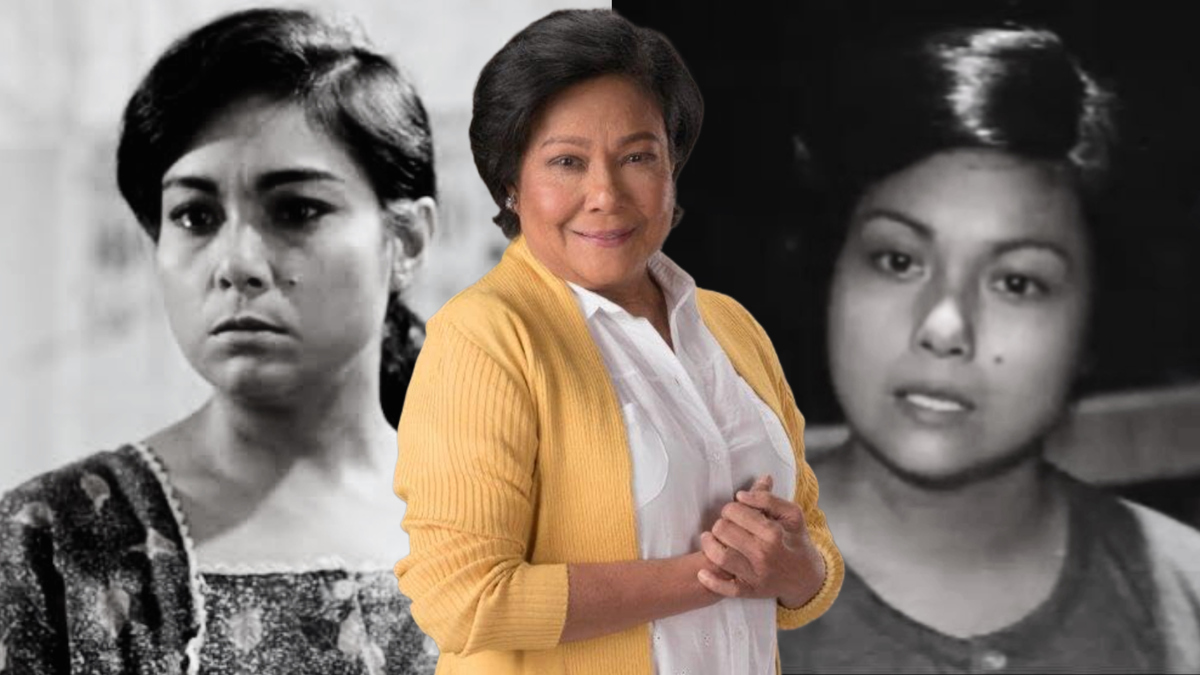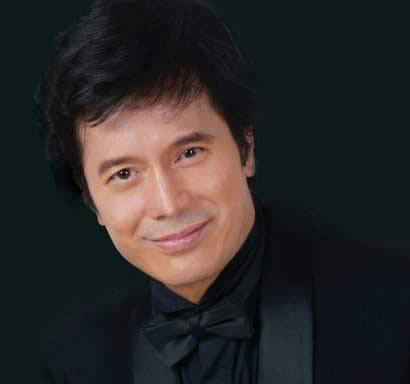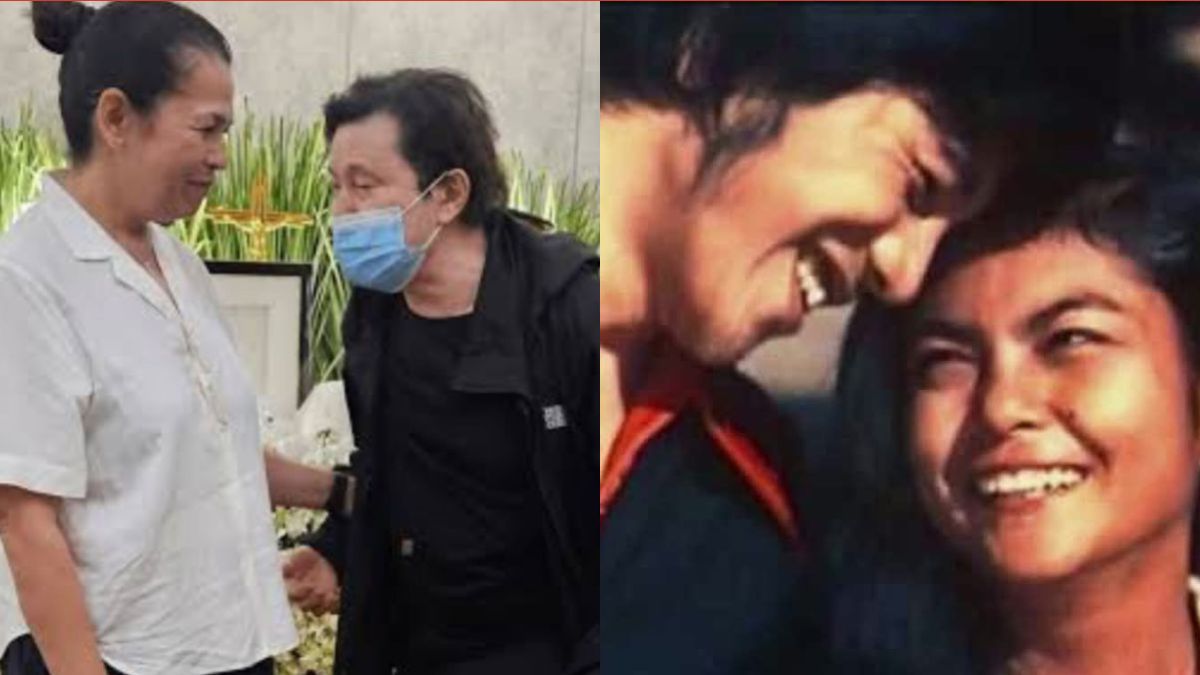Denise Laurel Uncovers Uncle Cocoy’s Long-Held Secret — ‘He Kept This Hidden from Everyone’

In the world of Filipino entertainment and theater, few names carry as much prestige and legacy as the Laurel family. With generations of talent flowing through its veins, the Laurels have graced stages and screens with unmatched elegance and passion. Among them, Cocoy Laurel stands as a revered icon—a performer whose voice and charisma earned him a permanent place in the hearts of many.
But behind the powerful performances, standing ovations, and enduring fame, lies a deeply personal story—one that had been buried for decades, hidden even from his closest fans.
This week, actress Denise Laurel, Cocoy’s niece and a celebrated star in her own right, finally broke the silence in an emotional interview that stunned the nation.
A Legacy of Talent
Born into one of the most influential families in the Philippines, Cocoy Laurel had big shoes to fill. As a grandson of former President José P. Laurel and nephew of Vice President Salvador “Doy” Laurel, he was expected to follow a path of leadership and politics. But Cocoy chose a different direction: the arts.
Cocoy became a household name in the 1970s and 1980s as a theater actor, singer, and leading man. He starred in many acclaimed productions, including Miss Saigon, West Side Story, and The King and I. He became known for his smooth voice, emotional range, and impeccable stage presence. For many, Cocoy symbolized sophistication and class.
But as Denise revealed in her interview, much of Cocoy’s life behind the curtain was shaped by something few people ever knew.
Denise’s Emotional Revelation
In a sit-down conversation with a major media outlet, Denise Laurel opened up about her uncle—not as a performer, but as a human being. With tears in her eyes, she described Cocoy as a “brilliant but tormented soul” who struggled silently with a truth he never dared to share publicly.
“He carried so much on his shoulders,” Denise said. “People saw the glamour, the elegance, the music—but not the battles he was fighting within.”
Then came the revelation.
“Uncle Cocoy never wanted anyone to know this, but he spent most of his life hiding his true self. He was afraid of being judged, of being misunderstood. He was terrified that if the public knew, it would destroy everything he had built.”
Denise stopped short of explicitly stating what that secret was. But those close to the Laurel family have long speculated about the personal sacrifices Cocoy made to maintain the public image expected of him.
Whether it was about identity, love, or deep personal trauma, one thing is clear: Cocoy’s silence was a choice made out of fear, pressure, and self-protection.

A Private Pain in a Public Life
Growing up in the spotlight isn’t easy. For someone like Cocoy—coming from a prominent family and rising as a public figure in conservative times—the stakes were incredibly high.
“He gave the audience all of himself on stage,” Denise added. “But when the lights went off, he would retreat into a shell. That was his safe space.”
Friends and colleagues described him as warm, generous, and professional—but also intensely private. Some even said he seemed to carry a quiet sadness, even in moments of triumph.
Veteran actress and longtime friend Celeste Legaspi shared, “Cocoy had a heart bigger than most people realized. He was a perfectionist, yes—but he also struggled to find peace. I think he always felt like he had to prove something—not just to the world, but to himself.”
A Family’s Compassionate Silence
Denise also revealed that the family was aware of Cocoy’s hidden burden for many years.
“We knew, but we never pressured him. We just loved him the way he was. He didn’t need to come out with anything to earn our love,” she said.
In many ways, the Laurels’ silent support speaks volumes. In a culture where appearances and reputations are often guarded fiercely, the family chose empathy over exposure.
“Uncle Cocoy deserved to live freely,” Denise said. “But he chose to keep this part of himself hidden to protect others—from gossip, from scandal, from pain. That’s the kind of man he was. He carried the weight so others wouldn’t have to.”
Why Speak Now?
Denise explained that sharing this now was not about creating controversy, but about honoring her uncle’s full humanity.
“I just want people to know that he was more than the performer, the star, the legend. He was a human being with wounds, fears, and dreams like all of us.”
She hopes that by opening up, others who feel the same pressure to hide their truth might find courage and comfort.
“It’s not easy to live a life where you feel like you can’t be yourself. If Uncle Cocoy’s story can inspire even one person to accept themselves more, then I know he’d be happy.”
The Public Reacts
Fans flooded social media with messages of love and support following Denise’s revelation.
“Cocoy Laurel will always be a legend. Learning about his silent struggles just makes me admire him more,” one fan tweeted.
“Thank you, Denise, for sharing this. It reminds us that our idols are human, too,” another posted.
In an age where mental health and authenticity are finally getting the attention they deserve, Denise’s courage to speak out may be one of the greatest tributes to her uncle’s legacy.

Remembering Cocoy Laurel
Though he has since stepped away from the public eye, Cocoy Laurel’s impact continues to live on through his recordings, stage performances, and the generations of performers he inspired—including Denise herself.
“He taught me to love my craft, to respect the audience, and to always give my all,” Denise said. “But most importantly, he taught me the power of silence—how sometimes, silence is where truth quietly lives.”
Now, with the secret unveiled and the truth gently acknowledged, Cocoy Laurel’s story becomes even more powerful—not just as a legend of the stage, but as a man who lived with courage, grace, and a quiet strength that never wavered.
